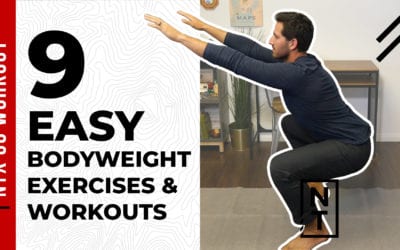“Sitting is the new smoking” has been an increasingly popular saying among scholars, researchers and doctors alike. It comes with good reason and research; a sedentary lifestyle has been linked to a ton of health concerns including weight gain, increased blood pressure, posture problems and a multitude of other health issues.
Not getting enough exercise or sitting for extended periods of time can also take a toll on your cognitive health, too. Some studies suggest that elevating your heart rate, even the slightest, can enhance neurogenesis. Neurogenesis is the process of producing neurons and neurons are responsible for transmitting information all throughout the body. Maintaining optimal brain health is important throughout all life stages; young to old.
Elevating your heart rate, even the slightest, can produce more neurons.
There are many ways to help boost your cognitive function including reading, meditating, getting adequate sleep and exercising. We’re going to take a deep dive into individual exercises like strength training and cardio exercises and look at the positive benefits on brain health from these particular styles of workouts. We’re also going to look at the possible brain health benefits of exercise on the elderly or people suffering from brain impairing conditions such as dementia or Alzheimer’s.
Resistance Training for Cognitive Health
When you think of strength training, what comes to mind? A gym full of mysterious machines? Endless curls and big biceps? Not exactly.
Strength training is a type of exercise that uses resistance as a way of building muscle and getting stronger. Some examples of the different types of exercises you can do while strength training with just your body weight include anything from squats, lunges, push-ups or planking.
While all of the physical health benefits of strength training are great, this kind of exercise also makes you feel great! With cognitive benefits such as a decrease in stress and anxiety, better mood and overall feelings, strength training can also help you think better.
Strength training 1 to 2 times a week can improve cognitive function
A study published by the National Center for Biotechnology Information found older individuals that practice strength training one to two times a week greatly improved their cognitive function over the control group who were more sedentary. The study showed that the strength training benefited cognitive function of selective attention and conflict resolution in the older persons. Another study published in the British Journal of Sports Medicine found that resistance, or strength training, helps enhance the structure of the brain and its functions, while also benefiting cognition in older adults.
Cardio Exercise to Decrease the Onset of Dementia
You may have heard a lot about cardio or aerobic exercises. These exercises go from low to high intensity and can include anything from walking, biking and running to jumping rope, swimming and bootcamp style workouts. The word aerobic literally means “requiring oxygen”. All these types of exercises require oxygen to meet these sometimes strenuous energy demands during this type of physical activity.
Physically, aerobic exercises increase blood flow throughout your body and improve your lung capacity. Mentally, cardio can be great to reduce anxiety and depressed feelings, all while boosting your mood. A recent study found in the American Academy of Neurology journal has found that greater cardio fitness exercises have shown a decrease in dementia in middle-aged women ages 38 and up. A high aerobic activity also delayed the age of dementia onset by nine and a half years.
Exercise to Prevent Cognitive Decline While You Age
Getting up and being active is important for everyone, even the elderly. Getting your heart rate up and participating in physical activities maintains adequate blood flow to the brain. This blood flow to the brain is essential for stimulating brain cell growth and can help lower the risk of dementia or onset dementia in some older people.
There’s been a multitude of studies done on the effects of exercise on the elderly (65 and older, normally) who might suffer from cognitive impairment with such health concerns like dementia or Alzheimer’s. One study in particular, published by ScienceDirect, found that persons 65 years and older with some type of cognitive impairment found that exercise training increased physical and cognitive function and positive behavior in people with dementia and other cognitive impairments.
In a study of 6000 women in their mid-60s, greater physical activity led to less cognitive decline
In a study published by JAMA International Medicine, they studied almost six thousand women all around the age of 65. In this study they found that with greater physical activity in these individuals, they were less likely to experience a cognitive decline in the next six to eight years of follow-up.
Onset Brain Impairments Improved with Regular Exercise
In subjects who might already show signs of dementia, there is still hope with slowing down the progression of this brain impairing condition. Any amount of physical activity can be extremely helpful to these individuals because it increases oxygen and blood flow to the brain and it can increase important chemicals that are found to protect the brain from loss of motor skills and memories.
Improving Brain Health Through Exercise
So, if you’re looking for a reason to go for that run, or step away from your desk for twenty minutes, do so. The benefits to your physical and mental health will be great and the long-term effects will all be positive.




0 Comments